The Challenges of Social Media in Healthcare: A Modern List
There’s no denying the real challenges of using social media platforms in healthcare. Let’s go over each of those hurdles.
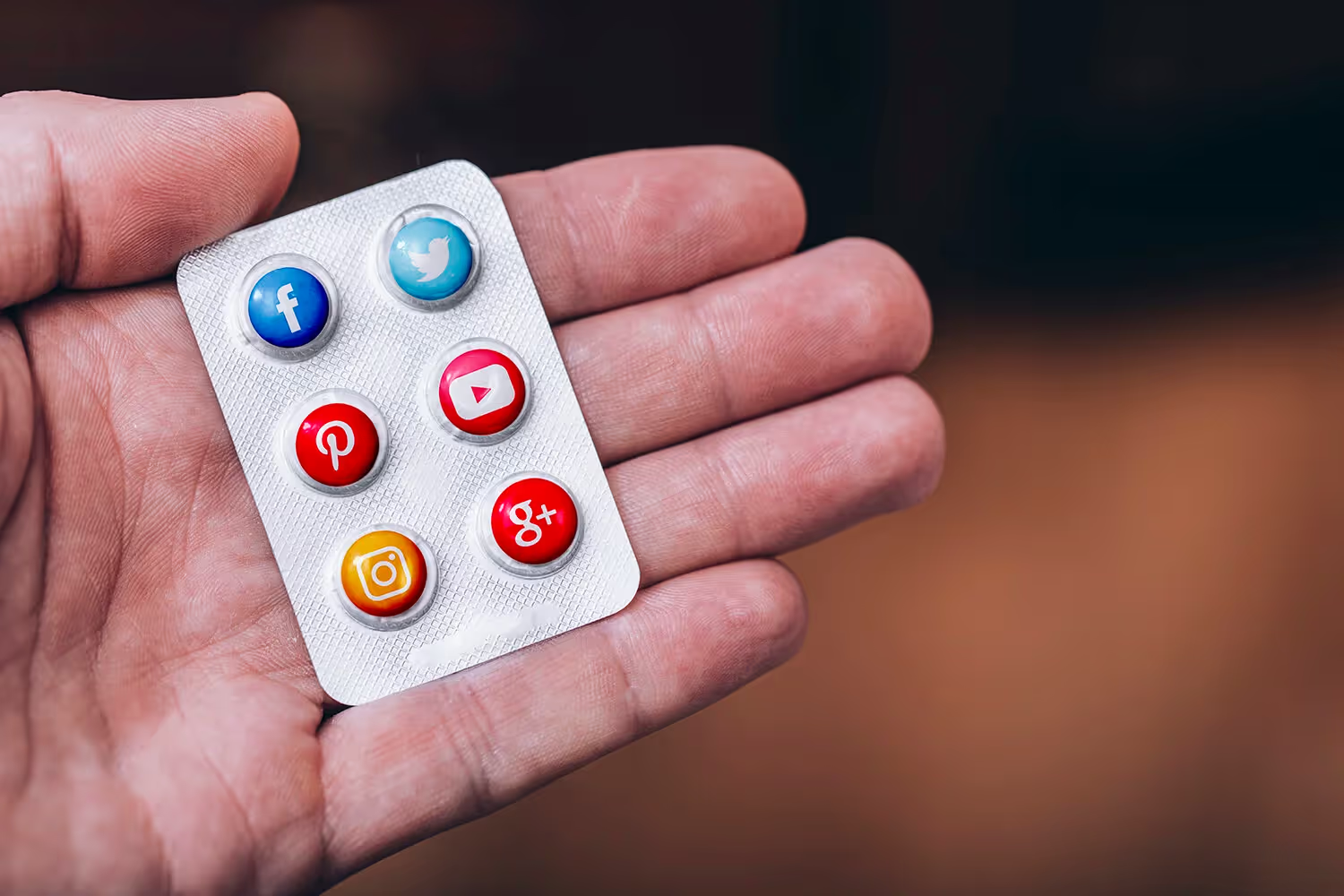
If you’re not currently using social media as a healthcare provider as a way to market your practice, services and staff, you’re behind the times.
I’m not saying that to shame you. Instead, I’m saying that more so to pursued you to use it. When I ask providers why they don’t use social media as a means to get the word out about their organization they usually give me one of two answers.
Either they don’t believe that their patients use the social web or they think it’s too risky.
If they answer with the former, I’ll mention some statistics like…
- Facebook saw 2.6 billion monthly active users in 2020. (Oberlo)
- Millennials have an average of 8.1 different accounts across different platforms. (GWI)
- Facebook services over 100 billion messages per day. (Facebook)
- 11% of mobile website traffic comes from the social web. (Adobe)

Yes, I’m that committed to this topic that if I were to have an in-person conversation about it I would just start rattling off statistics and their sources (sarcasm). In reality, I’d explain to them how it’s impossible to assume that your patient demographic isn’t on social media in some capacity.
Sure, if you work within geriatrics you probably won’t get as popular as fast as a general practitioner’s office. But that doesn’t mean people aged 65 or older abandon these platforms, 40% of them do according to Statista.
Let’s say the reason why you’re not using these platforms happens to be the former; it puts too much of a risk on your organization.
If that’s the case, then you’ve come to the right blog post.
Like anything, there’s a trade-off or pros and cons associated with introducing a new business task to your organization. Using social media is no different, but there’s no denying the real challenges of using these platforms in healthcare. Let’s go over each of those hurdles.
Challenge #1: Legal Ramifications
Let’s say you got everything for your social media accounts. You spent quality time over the course of the week perfecting the copy for your bio, choosing the best picture for your profile and formatting your banner image.
The following week, you make your first post. You want to take advantage of one of the most trending hashtags during the beginning of the week (#MondayMotivation) so you post an image of your workstation with some inspiring copy.
A month goes by since your first post and you receive a notification from the Department of Health and Human Services (HHS) saying you’ve violated the Privacy Rule of HIPAA. How did that happen?
Well, when you took the picture of your workstation, you accidentally left the medical notes of a patient on your computer screen. Thus, you’ll have to likely pay a fine.
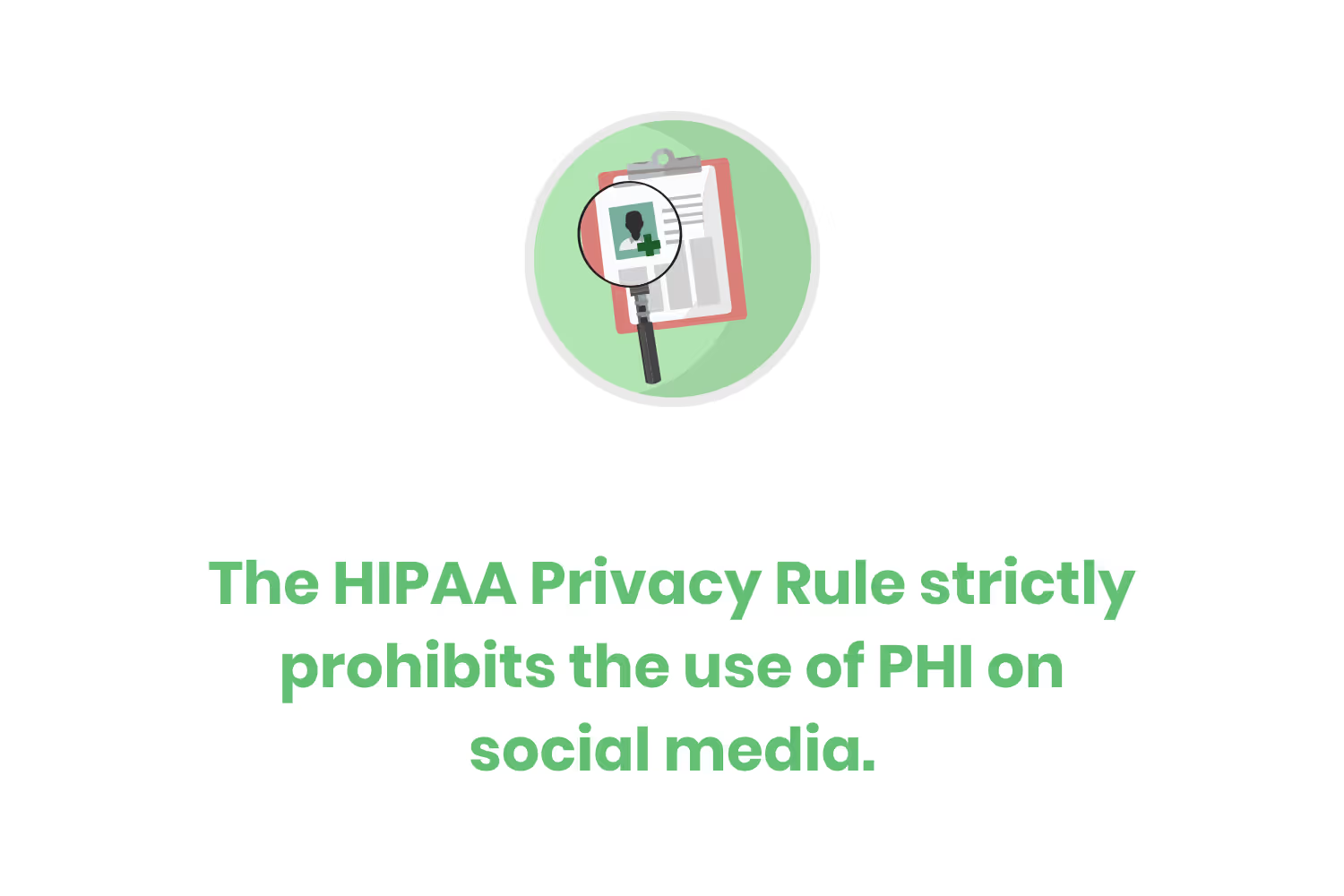
That might seem like an overly specific example, but it does happen. This goes back to the age-old adage, “Everyone makes mistakes.”
The reality is that the HIPAA Privacy Rule strictly prohibits the use of PHI on social media. Thus, you need to have absolute certainty that there’s not even a hint of sensitive information in everything you post.
Otherwise, you’ll face a HIPAA violation because of your activity on the social web. If you want to know just how often that happens, check out our up-to-date list.
I hope this all explains why the first challenge I listed is legal ramifications. The last thing you’ll want to have to deal with during your extremely busy work week is sorting out a government audit.
Challenge #2: Reputational Damages
Isn’t everything on social media is rainbows and butterflies? Not really.
Anger spreads faster through online communities than any other emotion on the entire spectrum.
While these platforms provide a central connection hub for people all across the globe, they can also lead to bullying, virtual witch hunts and victimization.
In fact, most people don’t think that these services provide any benefits. 38% of adults see social media as harmful in nature.
OK, but what about on a professional or organizational level? People tend to act more professionally when interacting with brands within these online communities, right?
You probably know the answer to that question...no.
Almost half of all consumers use the social web to “call out” brands. This includes complaints for…
- Dishonesty
- Customer service
- Bad experiences
- Pricing
- Rudeness
- Politics
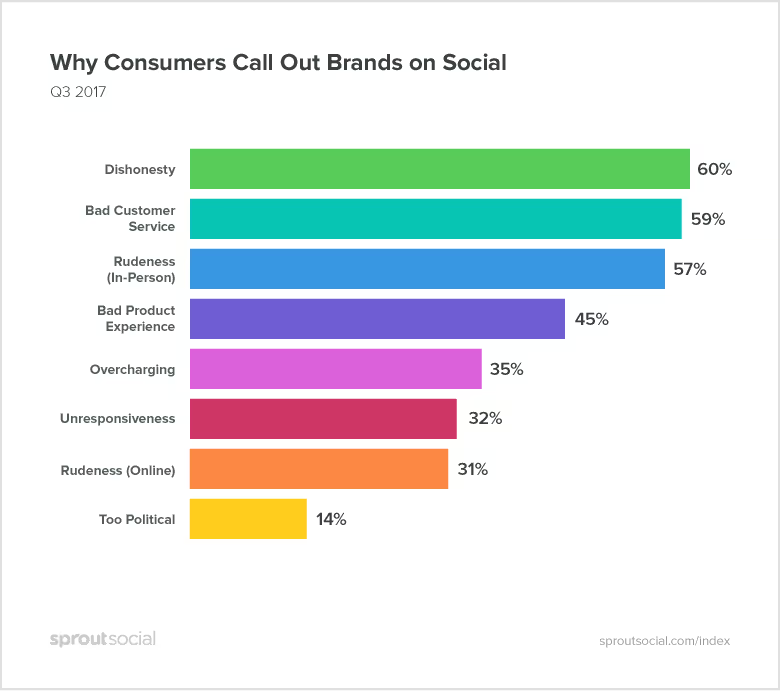
Imagine publishing content that you spent a lot of time creating only for it to get immediately called out. Or worse, it goes viral for all the wrong reasons.
I’m sure you’ve heard of some of these horror stories, like what happened to Chase in 2019.

Similar outrage has already happened to content that healthcare professionals’ posted on their social accounts. In some cases, the outrage was so bad that the provider who published the content facing criticism walked away from the platform altogether.
The whole reason why you’re thinking about creating accounts on Facebook, Instagram, Twitter, etc. is to ultimately get more people to realize that your practice exists. However, it’s possible that what you post could have an opposite, negative effect.
Challenge #3: Low-Quality Information
The longest-standing setback for the internet in general is that it’s open to everyone. Yes, that’s also the reason why it’s such a powerful tool. What I mean by it being a setback is that anyone can post information about any topic that they want.
As a result, people become self-proclaimed experts and spread (whether knowingly or otherwise) false information.
As a healthcare professional, you probably already know that this problem exists due to how many patients come into your office explaining how they’ve self-diagnosed themselves on search engines.
But, for the sake of credibility, I’ll also reference a statistic from MIT. They found that falsehoods are 70% more likely to receive a retweet than the truth.
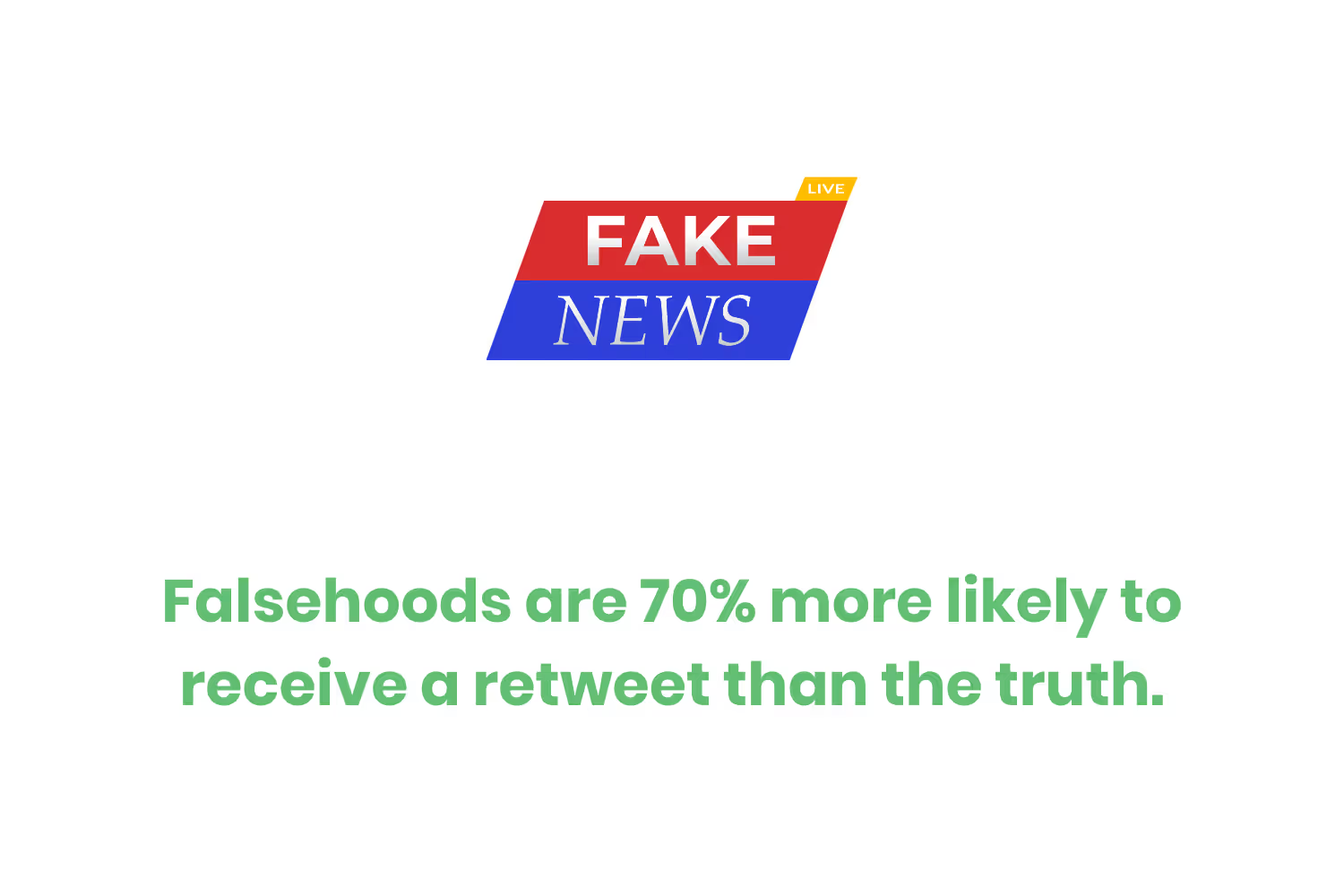
I’m not accusing you of spreading misinformation, nor am I saying that you’re going to. However, social media platforms cater to their users through advanced algorithms in order to provide them with content they’ll enjoy.
So what could happen is you find some information or video that’s interesting on your feed and re-share it with your audience. The content you reshared looks legitimate so you don’t think much of it.
A few days go by and the post gets removed by the platform you re-shared it on because of the false information within it.
This sort of scenario happens all of the time and it could be detrimental to your reputation.
We saw this happen often during the early stages of the COVID-19 pandemic.
Since the outspread happened during an election year for the US, it became very political. As a result, content cronies created a lot of misleading videos and posts in order to draw traffic to their websites.
A news website, Breitbart, published a video in July 2020. It featured a physician, Stella Emanual, making exclamations about an unproven COVID-19 vaccine. Each platform eventually removed the video including Facebook, Twitter and Youtube. It received at least 14 million views during its lifespan on social media, including a share by President Donald Trump.
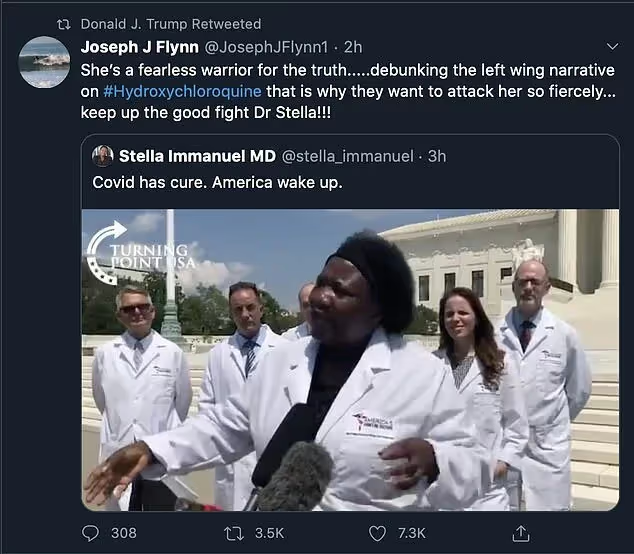
As a healthcare professional, you have arguably the most important responsibilities to withhold. You’ve worked hard for the reputation you’ve gained over the course of your career. In the social media landscape, though, your accreditations may be in question by the public based on one re-share of false content.
Challenge #4: Time-Consuming
If you search anything related to “social media” on a popular job board, you’ll find thousands of results.
Ten years ago, the thought of hiring someone on to your organization with the sole responsibility of managing your presence on the social web was a pipe dream. Now it’s a much different story.
The point I’m trying to make is that managing the content, your accounts and interactions on each of your platforms is a time-consuming process. It takes time that you might not have throughout your week, especially if the statistics about burnout rates in your industry are true.
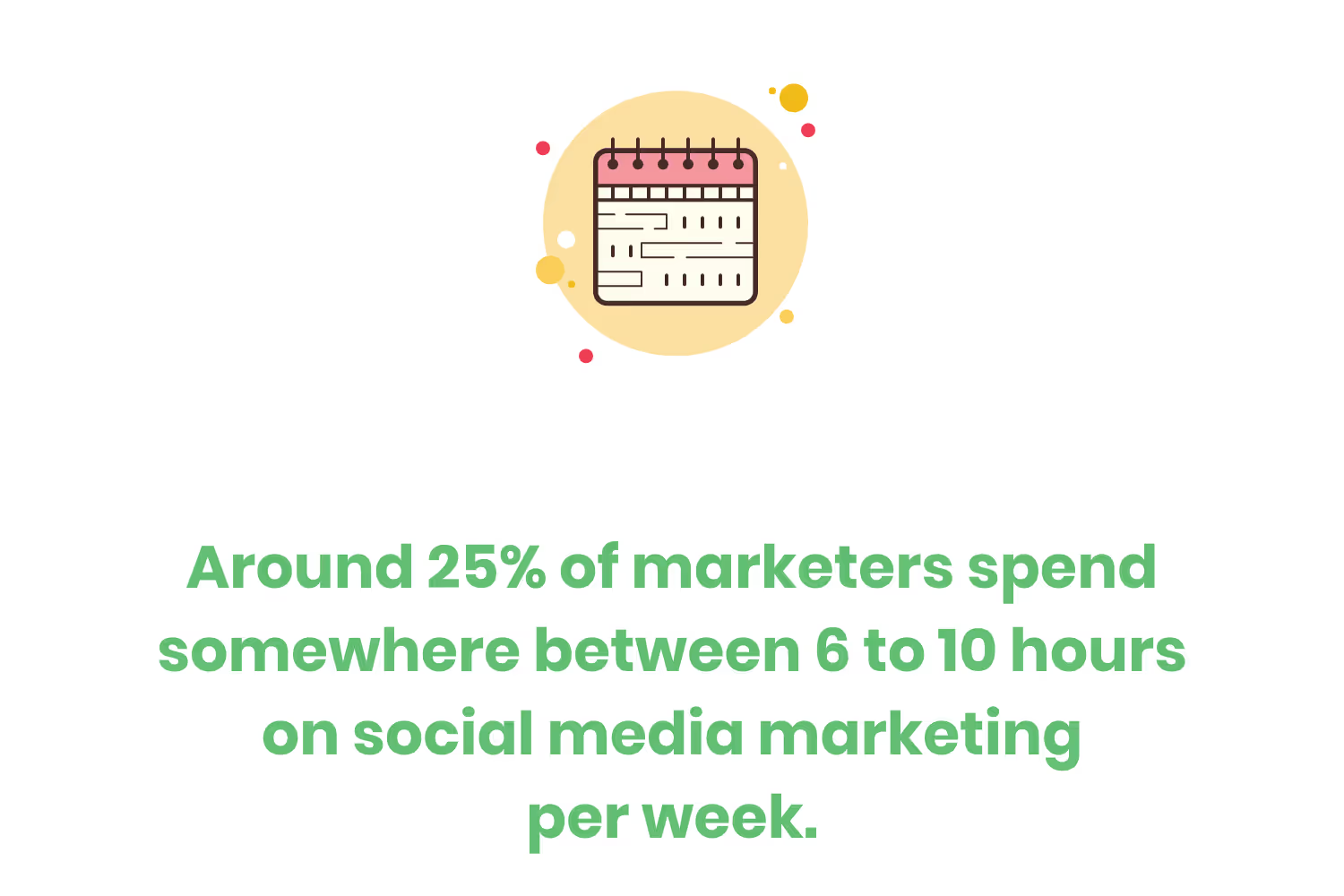
Around 25% of marketers spend somewhere between 6 to 10 hours on social media marketing per week.
Maybe you could get by with only spending 1 hour or so per week on your accounts. However, what you put in you’ll get in return so spending that small amount of time probably won’t result in much return.
Challenge #5: Saturation
If you read this blog post in the early 2010s, this section wouldn’t exist.
Even back then, Facebook had around 500 million users. That’s a lot of accounts, but to put it in perspective that’s only one-quarter of the amount that the social juggernaut has at the time of writing.
The reality is that you’re sitting here reading this 1 decade later there’s a total of 3.5 billion users scattered across all of these different channels.
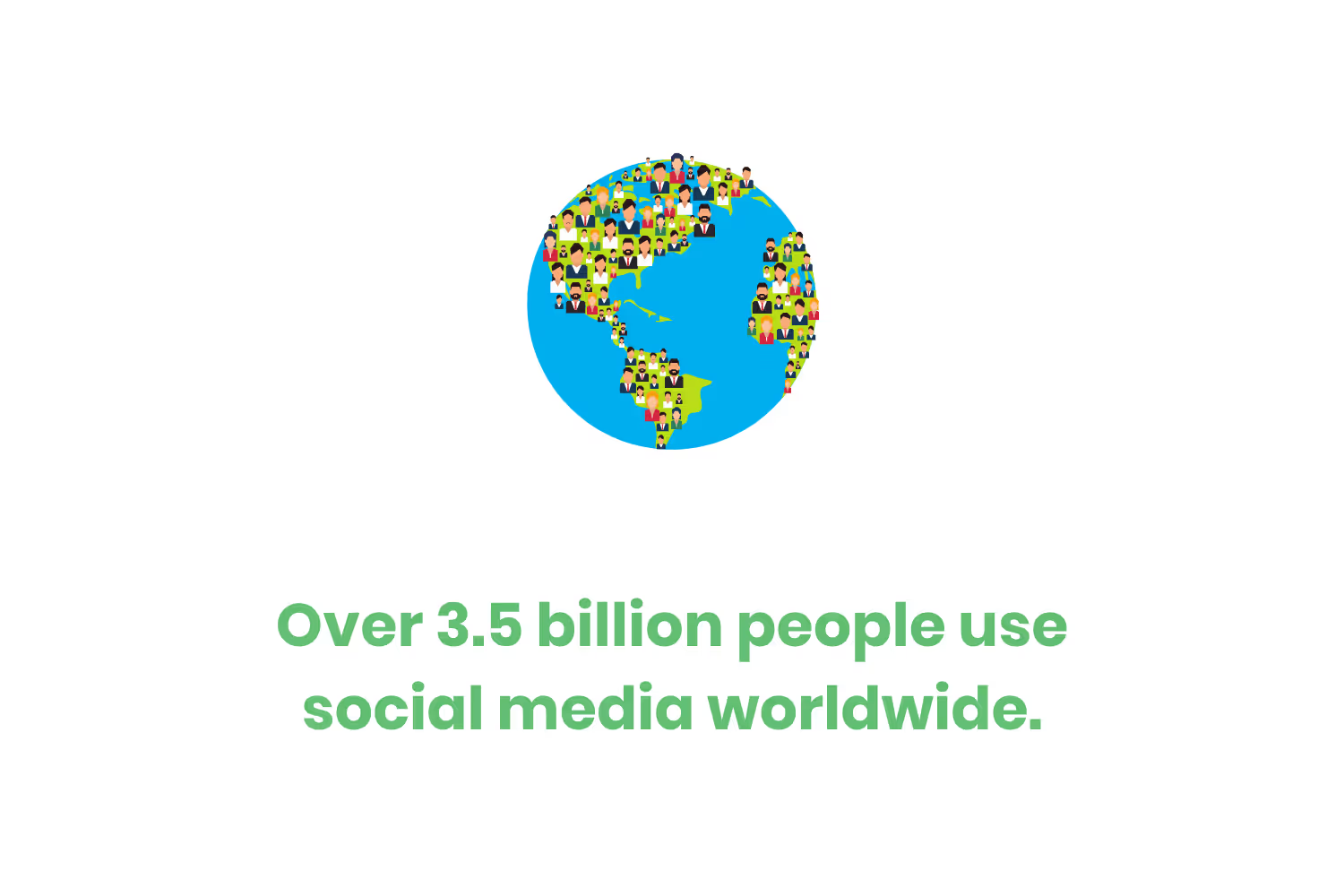
When first starting out, a lot of healthcare professionals will spend hours upon hours researching the different channels to try and figure out which one they should start on. Although that’s what they should do, it’s also where their research ends.
Instead of spending all of your time trying to figure out which platform to start and why. You should also spend a lot of time drafting out your strategy. Oftentimes what happens is organization leaders will dive right in, expect results, not get them and then give up.
For the sake of comparison, think of starting your social media like starting a restaurant. I can’t tell you how many times people within my circle will see a new restaurant and tell me how often they fail, it’s a thing.
If you don’t know it, 60% of restaurants fail within their first year. Why do they fail? It’s not because they don’t meet federal food standards. They fail because they don’t know what it takes to succeed. Thus, 40% of them know what they’re doing and have a proper strategy for success. All of this doesn’t change the average person’s mindset about the oversaturation within this industry.
My point after all of this is that it’s all about the strategy you come up with, not just where you start.
Conclusion
The point of this blog post isn’t to dissuade you from using social media as a way to engage with your patients and increase your volume.
It’s to shed some light on the fact that there are some real challenges you’ll face throughout your journey, some of which happen before you’ve even created your accounts.
Naturally, like with anything else in the healthcare industry, you’ll have to jump through more hoops and pay more attention to your strategy in order to operate your accounts legally. If you don’t you’ll likely (unintentionally) cause a breach, leading to a fine from the HHS.
So, now that you’ve read this, you can officially make your decision as to whether or not social media is right for your practice.
Emphasize your product's unique features or benefits to differentiate it from competitors
In nec dictum adipiscing pharetra enim etiam scelerisque dolor purus ipsum egestas cursus vulputate arcu egestas ut eu sed mollis consectetur mattis pharetra curabitur et maecenas in mattis fames consectetur ipsum quis risus mauris aliquam ornare nisl purus at ipsum nulla accumsan consectetur vestibulum suspendisse aliquam condimentum scelerisque lacinia pellentesque vestibulum condimentum turpis ligula pharetra dictum sapien facilisis sapien at sagittis et cursus congue.
- Pharetra curabitur et maecenas in mattis fames consectetur ipsum quis risus.
- Justo urna nisi auctor consequat consectetur dolor lectus blandit.
- Eget egestas volutpat lacinia vestibulum vitae mattis hendrerit.
- Ornare elit odio tellus orci bibendum dictum id sem congue enim amet diam.
Incorporate statistics or specific numbers to highlight the effectiveness or popularity of your offering
Convallis pellentesque ullamcorper sapien sed tristique fermentum proin amet quam tincidunt feugiat vitae neque quisque odio ut pellentesque ac mauris eget lectus. Pretium arcu turpis lacus sapien sit at eu sapien duis magna nunc nibh nam non ut nibh ultrices ultrices elementum egestas enim nisl sed cursus pellentesque sit dignissim enim euismod sit et convallis sed pelis viverra quam at nisl sit pharetra enim nisl nec vestibulum posuere in volutpat sed blandit neque risus.

Use time-sensitive language to encourage immediate action, such as "Limited Time Offer
Feugiat vitae neque quisque odio ut pellentesque ac mauris eget lectus. Pretium arcu turpis lacus sapien sit at eu sapien duis magna nunc nibh nam non ut nibh ultrices ultrices elementum egestas enim nisl sed cursus pellentesque sit dignissim enim euismod sit et convallis sed pelis viverra quam at nisl sit pharetra enim nisl nec vestibulum posuere in volutpat sed blandit neque risus.
- Pharetra curabitur et maecenas in mattis fames consectetur ipsum quis risus.
- Justo urna nisi auctor consequat consectetur dolor lectus blandit.
- Eget egestas volutpat lacinia vestibulum vitae mattis hendrerit.
- Ornare elit odio tellus orci bibendum dictum id sem congue enim amet diam.
Address customer pain points directly by showing how your product solves their problems
Feugiat vitae neque quisque odio ut pellentesque ac mauris eget lectus. Pretium arcu turpis lacus sapien sit at eu sapien duis magna nunc nibh nam non ut nibh ultrices ultrices elementum egestas enim nisl sed cursus pellentesque sit dignissim enim euismod sit et convallis sed pelis viverra quam at nisl sit pharetra enim nisl nec vestibulum posuere in volutpat sed blandit neque risus.
Vel etiam vel amet aenean eget in habitasse nunc duis tellus sem turpis risus aliquam ac volutpat tellus eu faucibus ullamcorper.
Tailor titles to your ideal customer segment using phrases like "Designed for Busy Professionals
Sed pretium id nibh id sit felis vitae volutpat volutpat adipiscing at sodales neque lectus mi phasellus commodo at elit suspendisse ornare faucibus lectus purus viverra in nec aliquet commodo et sed sed nisi tempor mi pellentesque arcu viverra pretium duis enim vulputate dignissim etiam ultrices vitae neque urna proin nibh diam turpis augue lacus.


.avif)

